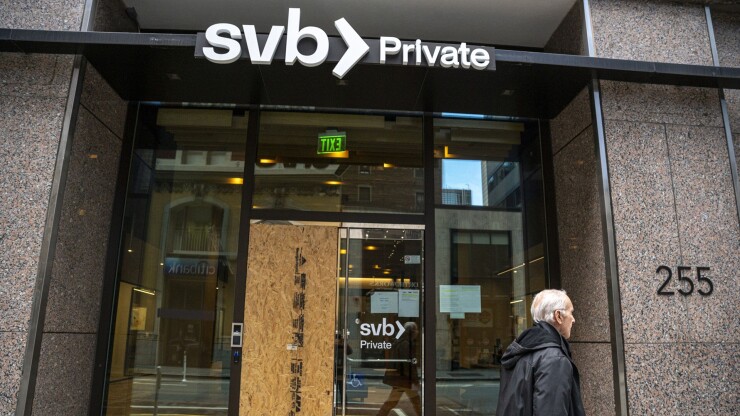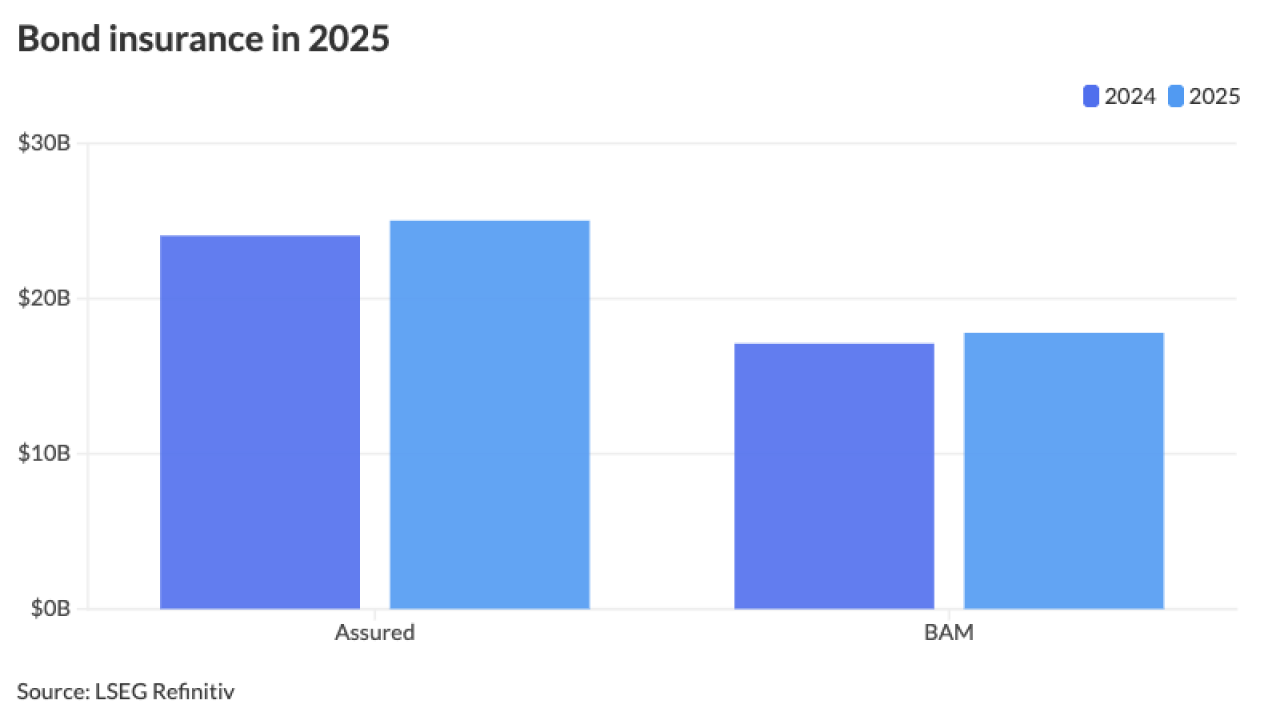More than $7 billion of municipal bonds from the holdings of defunct Silicon Valley Bank, the bulk of which sport low coupons already facing pricing pressure, are set to hit the Street in the next few weeks.
The Federal Deposit Insurance Corp., which took over Silicon Valley Bank on March 10,
The muni holdings total about $7.4 billion, according to the bank's

The FDIC pledged that the portfolio sales would be "gradual and orderly" and that BlackRock would take into account "daily liquidity and trading conditions" when conducting the sales.
BlackRock, which declined to comment, is expected to start selling the bonds in the next two to three weeks, according to a source. It is unlikely to be a single auction and the firm is currently circulating the list to the Street to gauge interest, another source added.
As of December 31, 2022, the fair value of the muni portfolio was marked at $6.15 billion, according to SVB's 10-K.
Of the $7.4 billion, the majority, or $4.26 billion, consist of AAA-rated bonds. Double-A-plus rated bonds totaled $1.84 billion, and double-A bonds accounted for $1.11 billion.
The portfolio has roughly 2,300 positions, of which only about 10% offered 4% or 5% coupons, with the rest carrying lower interest coupons, according to Jason Appleson, managing director and head of PGIM Fixed Income's municipal bond team.
Low coupon bonds became increasingly popular in the recent past's low-rate environment but under the Federal Reserve's rate-hiking cycle have faced price pressure. Many now carry significant discounts and have crossed over the de minimis threshold.
Retail buyers are the traditional buyer base, with institutional buyers typically sticking with traditional 4% or 5% debt.
As the SVB paper begins to hit the streets, it remains to be seen if BlackRock finds sufficient interest.
"Seven billion is a lot to digest," Appleson warned. If traditional buyers can't take it all on, the bonds "will have to get so cheap that your average muni investors will say, 'I'll buy inferior coupons because I can't resist."
Appleson added that he would be "in the camp that it would have to be very cheap for me to start giving it a serious look."
The bank bid sheet is an "800-pound gorilla," said John Mousseau, president, CEO and director of fixed income at Cumberland Advisors.
"It's a big list, when you combine SVB and Signature, in a market that hasn't had a lot of supply to it," Mousseau said. "The question is, does it act like a tsunami or like a rolling tide coming in? We don't know."
BlackRock should have an easier time selling low-coupon bonds now than last fall or earlier this year, Mousseau said.
"If you're someone who's expecting a slowdown in the economy and the bond markets to continue to revert to the mean, you might be willing to pay up for these bonds," Mousseau said.
Cumberland will take a look at the holdings when they come out, he added.
"If you're in a year like we are where overall issuance is down, this might present an opportunity to buy some paper in states you might have had a hard time filling in," he said.
The FDIC
Signature Bank held only $247 million of state and municipal securities in 2022.
First Republic, which had to be rescued by a group of larger banks, carries $19.4 billion of state and municipal securities, but it's unclear whether that portfolio will be sold.
SVB was the sixth-largest bank holder of muni bonds, Municipal Market Analytics said in a March 21 report.
While noting that the portfolio liquidations would likely avoid a "messy, financial-crisis type scenario," MMA said that "material changes in the disposition" of the bond-buying programs may "weigh on industry returns through year end or longer, unwinding at least some of the 2023 sector outperformance expected to come from tax-exempt new-issue scarcity."





